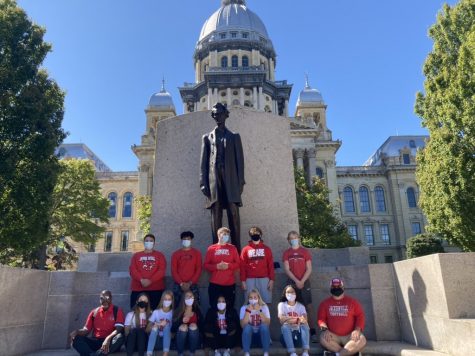PTSD: A soldier’s battle
October 19, 2015
Post-traumatic stress disorder is most commonly found in soldiers but can be in other people as well who have experienced something traumatic. Post-traumatic stress disorder (PTSD) is a mental health condition that’s triggered by a terrifying event, either experiencing it or witnessing it. Symptoms can include flashbacks, nightmares and severe anxiety, as well as uncontrollable thoughts about the event.
Experts and doctors now believe that as much as one third of Iraq war veterans have the symptoms of PTSD. Thirty percent of soldiers develop mental health problems within three to four months of being home, and an estimated 20% of returning Iraq and Afghanistan veterans turn to heavy drinking or drugs once they return to the U.S. What’s even worse is that on average 22 veterans commit suicide every day.
However, this can be prevented; there are ways in which it can be countered. Two types of treatments have been shown to be effective or useful for treating PTSD. The first is counseling and the other is medication, professional therapy or counseling which can help the person understand his or her thoughts and discover ways to cope with their feelings. There are several types of counseling that have shown to be useful for treating PTSD including selective serotonin reuptake inhibitors; these can help the individual feel less sad and less depressed.
Post-traumatic stress disorder (PTSD) is most commonly found in soldiers but can be found in others; there are ways it can be treated but many people don’t like or want to admit to it. If you know someone who has PTSD or you think he or she might, let someone know so the individual can be helped before it’s too late.






